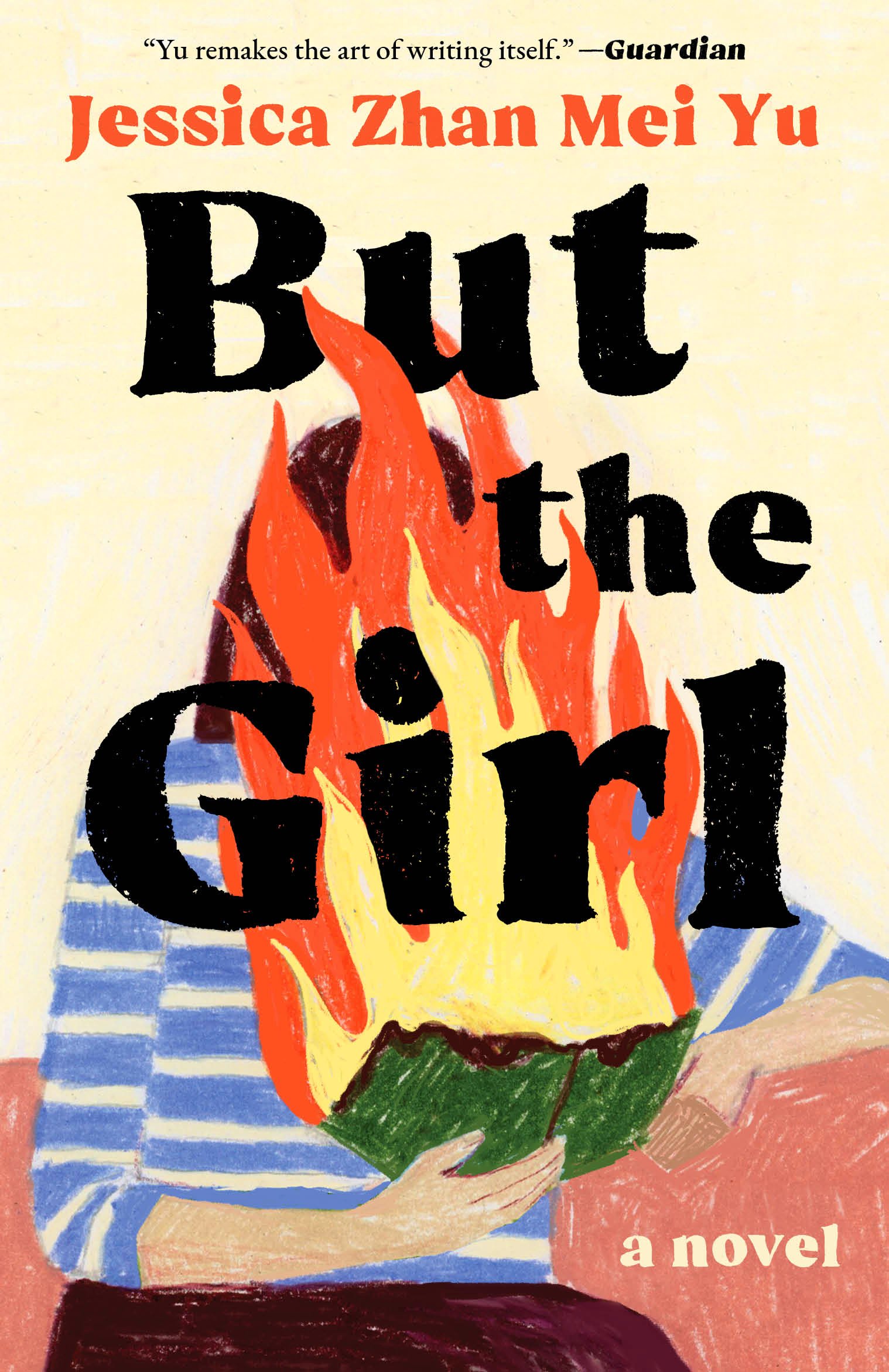But the Girl
by Jessica Zhan Mei Yu
Published: March 05, 2024
ISBN: 9781951213985
Paperback $18.00
by Jessica Zhan Mei Yu
Published: March 05, 2024
ISBN: 9781951213985
Paperback $18.00
by Jessica Zhan Mei Yu
Published: March 05, 2024
ISBN: 9781951213985
Paperback $18.00
But the Girl
Jessica Zhan Mei Yu
“Having been Jane Eyre, Anna Karenina and Esther Greenwood all my life, my writing was an opportunity for the reader to have to be me…”
Shortly after flight MAS370 goes missing, scholarship student Girl boards her own mysterious flight from Australia to London to work on a dissertation on Sylvia Plath. Though she is ambivalent toward academia and harbors ideas about writing a post-colonial novel, if only she could work out just what that means, Girl relishes the freedom that has come with distance from the expectations and judgements of her very tight-knit Malaysian-Australian family. At last Girl has an opportunity to live on her own terms.
Unfolding across Girl’s time at an artist residency in Scotland as she makes friends and enemies alike in a world far removed from any she’s ever known, But the Girl is a wry and playfully philosophical coming of age novel that reveals the joys, embarrassments, pleasures, and agonies of trying to discover and understand who you are. Girl grapples with the long shadow of colonialism, the pressure of expectations in immigrant families, and the sometimes difficult fact that those closest to us remain the most unknowable.
Praise for But the Girl
"But the Girl is a vivid novel of consciousness with a delightful sense of play. Jessica Zhan Mei Yu writes with striking originality that combines the irreverent and the philosophical about the ambiguities and ambivalences of contemporary life. A wonderful new novel for a metamodern world."
—Brandon Taylor, author of The Late Americans
"Yu remakes the art of writing itself."
—The Guardian
"Ambitious."
—Daily Mail
"Sharp, flecked with glints of bone-dry humour... It's compellingly poignant. BUT THE GIRL is a debut that heralds a skilled and singular new talent."
—The List
"A unique and meaningful novel: refreshingly unsentimental, written with a directness that is both self-effacing and wry. The voice sometimes recalls Lucia Berlin, JD Salinger or Lorrie Moore but it's entirely her own."
—Sharlene Teo, author of Ponti
"A delicate investigation into intergenerational immigrant subjectivities... Written in a flowing, internal narration that occasionally moves into moments of not-quite-real, observations of the minutiae of everyday microaggressions build up to depict the internal landscapes that minorities must uncomfortably navigate."
—The Skinny
"In this semi-autobiographical telling of art, friendship, the musings of Girl will be relatable to anyone subjected to the absurdity of the world."
—Our Culture Magazine
"Yu's masterly debut... brims with striking insights and fully realized characters, exploring with nuance and self-deprecating humor the fraught reality of navigating academic and artistic spaces as a woman of color. This signals the arrival of a bold new voice."
—Publishers Weekly, Starred Review
"But the Girl is enjoyable, varied and strange. It is a remarkable first novel…"
—Midwest Book Review
"A fiercely intelligent re-examination of literature through the lens of colonization, full of fire."
—Alice Pung, author of One Hundred Days
"With But the Girl, Yu offers a challenging and invigorating work of many faces."
—Australian Book Review
"Yu’s narrator instinctively plays anthropologist, skewering not just social minutiae but language itself."
—The Age
"Jessica Zhan Mei Yu has crafted a finely layered novel, with a vivid interior world and a playful, vivacious prose style. Here is a writer whose sharp observations, embrace of self-critique and crisp voice keep the reader engaged in the imagined world of the novel – and help us see the world anew."
—The Conversation
"Yu has created a love and hate letter to academia, to the labour of being a woman of colour in creative industries, and to the intricate webs of sorrows and joys spun by families. But the Girl is a contemporary novel at its finest: witty and seemingly meandering, but deeply poignant and skilful in its dissection."
—Readings
"A narrator like Girl feels precious and singular: in the mirror of her thoughts, I saw myself often, a feeling that was both embarrassing and deeply affirming, which was much like growing up."
—Meanjin
"Yu writes about the legacy of being a second-generation immigrant, racism, intergenerational trauma, the reclamation of English as a subject of colonization, and the pitfalls of academia with a biting incisiveness and gallows humour."
—Books + Publishing





